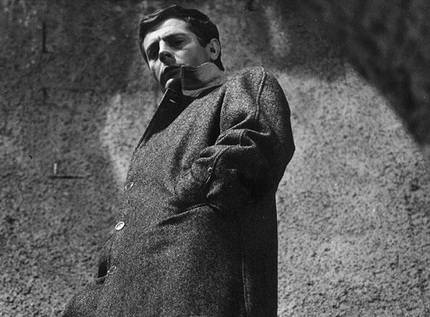Melbourne Cinematheque May Round-up: Petri And Italia Scorned

Welcome back to my ongoing coverage of the Melbourne Cinematheque's fantastic program for 2013. I have made an executive decision that my singular reviews are much too insular and often miss the point of promoting the holistic concept of this seasonal schedule, so will instead be breaking down what you shouldn't miss out on and a brief tiding as to why.
For the rest of May 22-29 is the excellence of the bizarre and thrilling Italian auteur Elio Petri: A filmmaker above suspicion.
About the Auteur:
Elio Petri (1929-1982) was one the most uncompromising and eclectic of political filmmakers. His often underrated, incendiary, satiric work exposed the moral complacency and corruption of postwar Italian politics and religion. He was awarded with a (non-collected) 1970 Best Foreign Language Film Oscar for Investigation of a Citizen Above Suspicion and the Palme d'Or at Cannes in 1972, Petri crafted various masterpieces throughout his career.
Running from May 15 to May 29, Petri's incendiary films from this point onwards are as follows...
May 22
Property Is No Longer A Theft (1973)
This is a troubling piece with no solution just scornful observation, drawing on politics, psychology and social commentary masterfully. Score by Ennio Morricone.A darkly comic tale of a bank teller (Flavio Bucci) with a literal allergy to money - and a figurative allergy to how it corrupts human souls.
I, Giorni Contati (1962)
When ageing widower Cesare (Salvo Randone) witnesses the death of a stranger on the street, he is compelled to take his life in a new direction. Cesare's return to his youthful dreams is translated to the ruminative wandering of the camera.
A depressing concept and not one of the more renowned films in Petri's oeuvre but so well defined and written that it deserves to be seen on the big screen.
May 29
Todo Modo (1976)
A group of leading Christian Democrats attend a religious retreat, turning confessional practises into the tools of power in this controversial effort that is a balance of political thriller, futuristic fantasy, and metaphysical meditation.
Petri's most important film, is magnificently staged by Scorsese collaborator Dante Ferretti. It was such a controversial film that it was shelved immediately after its premiere (and never re-released) for the connections it makes to Italy's just then murdered prime minister.
Despite its connotations critics have now recently praised it for its film qualities.
We Still Kill The Old Way (1967)
The final film for the Elio Petri season is a sizzling title and based on Leonardo Sciascia's novel. The film observes small-town Sicilian life and is one of the earliest films to fully tackle the subject of the Italian Mafia as a lonely professor investigates the murder of two men, becoming obsessed and paranoid in the process.
Winning best screenplay at Cannes that year the film echoes communal sentiments of unearthed violence and hidden chaos still evident in films the likes of Gomorrah today.
Please check the Melbourne Cinematheque guide for a more detailed account of the films comprising Petri's marvelous season. I will return in June to tackle the very exciting 'Roger Corman: Fast, Cheap and Under Control' season. See you then.

Do you feel this content is inappropriate or infringes upon your rights? Click here to report it, or see our DMCA policy.






